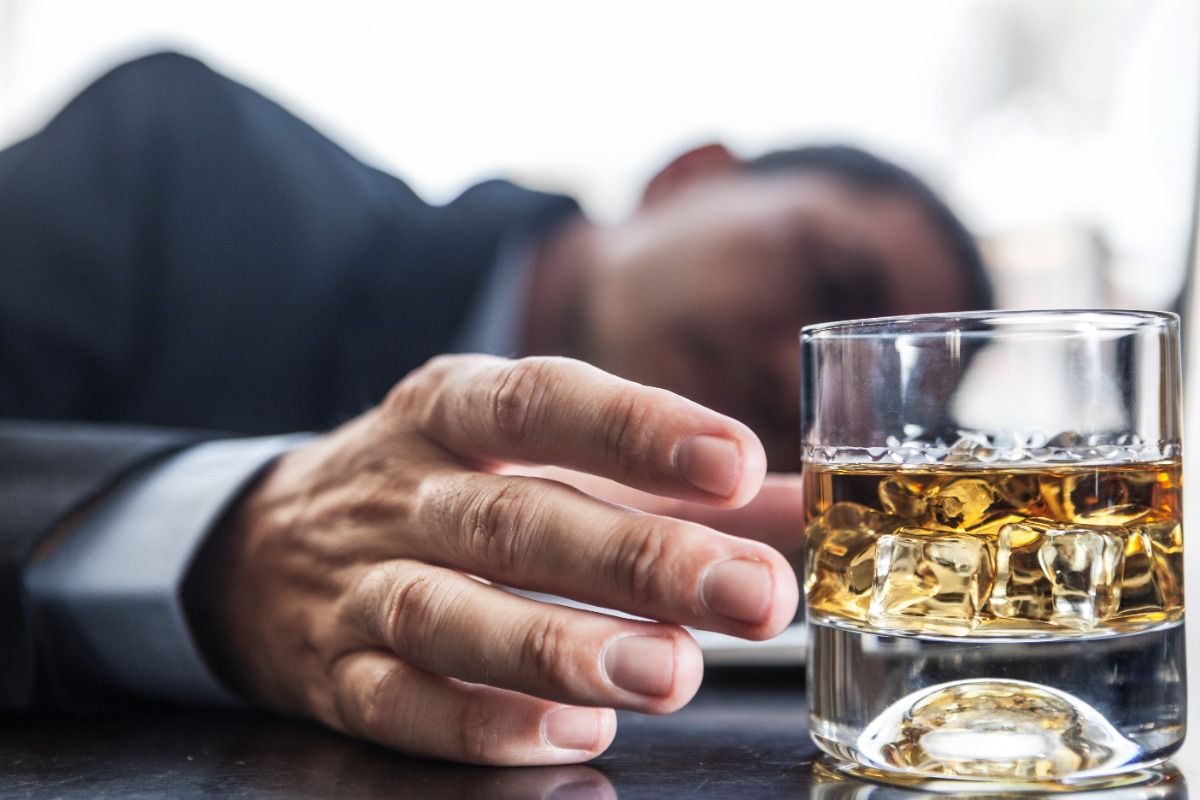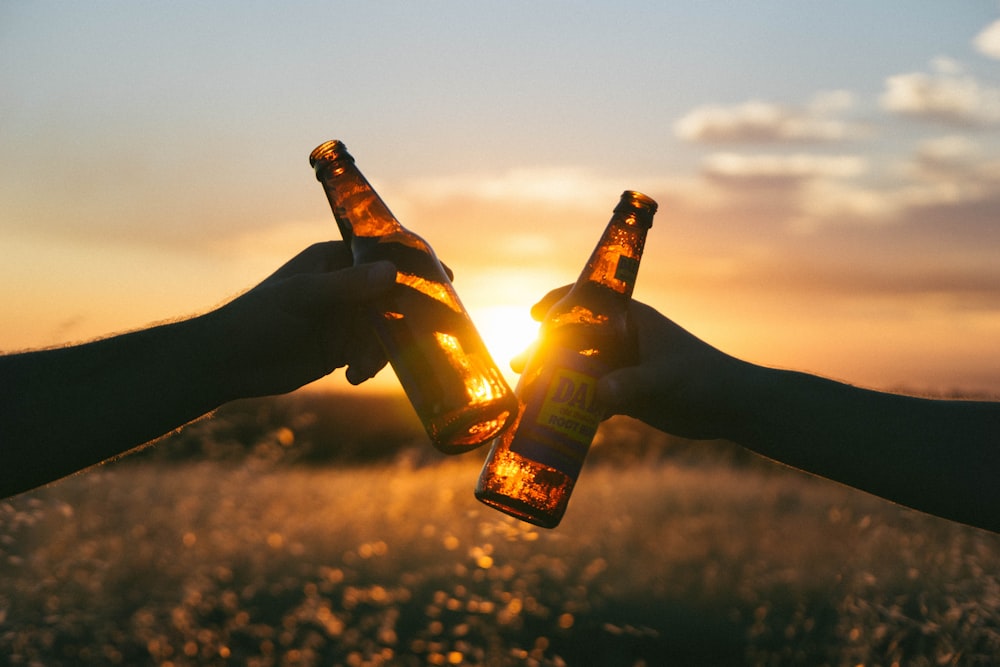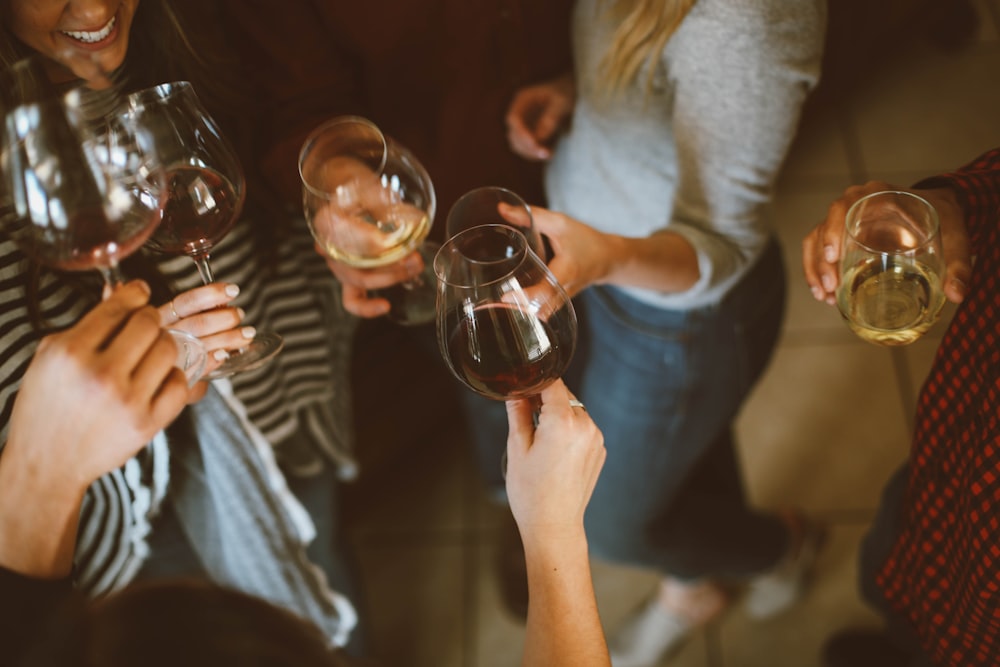
Just as some people have an unhealthy relationship with food where they binge eat when they’re stressed or use food to fill a void when they’re depressed, many people also have an unhealthy relationship with alcohol.
It’s possible that over time, you’ve developed unhealthy or problematic drinking behaviors, or unhealthy patterns when it comes to alcohol consumption.
If you vowed to be a healthier person this year, it’s time to get honest with yourself and examine your relationship with alcohol. Do you drink alcohol too often? Or, when you do drink alcohol, do you overdo it and drink too much? Have you become dependent on alcohol to cope with stressful situations such as using alcohol to manage social anxiety?
In order to protect your health, you want to be able to recognize the early warning signs of when you might be developing an alcohol problem. If, for example, you tried participating in something like “dry January” (a popular tradition that involves a sober, alcohol-free month following the start of a new year) but noticed some worrisome struggles when you tried, that’s a warning sign you shouldn’t ignore.
Myths About Problem Drinking
There are many myths out there about what it means to have a drinking problem. Many people believe that they only have a problem with alcohol if they drink alcohol every day, or if they drink when they’re alone. However, these are not the only signs of an unhealthy relationship with alcohol.
For example, you could be a person who rarely drinks alcohol. However, if you abuse alcohol whenever you do drink, and you always overdo it (often referred to as binge drinking) this could be a sign of an unhealthy relationship with alcohol. Similarly, even if you don’t drink alcohol often, if you find that you have a pattern where you need some alcohol to cope with certain situations, this is another sign of an unhealthy relationship with alcohol.
You don’t have to be an alcoholic or addicted to alcohol in order to qualify as someone who has a problematic relationship with alcohol.
Below are some signs that your relationship with alcohol may be becoming unhealthy and problematic, if you’re answering ‘Yes’ to the below questions:

Do You Use Alcohol as a Crutch to Manage Social Anxiety?
Do you find yourself needing alcohol to get through first date jitters, or needing alcohol in social situations due to some form of social anxiety?
Imagine you’re on a date or at a friend’s party with no alcohol available to you. How do you feel? Does it make you a bit nervous, awkward or uncomfortable just thinking about it?
While it’s normal to enjoy consuming alcohol in social situations, you should still be able to relax, interact with others and have fun without it.
If you feel awkward or uncomfortable on dates, at parties, or even when you’re about to get intimate with someone when you’re sober, you might have an unhealthy relationship with alcohol. For example, if during these social scenarios (dates, parties, and physical intimacy) you can’t help but think how much more comfortable you’d feel if you had a drink, this is a sign of a potential alcohol dependency.
Do You Bring Alcoholic Beverages With You to Events That Should Be Sober Activities?
We’ve just mentioned how many people use alcohol in an unhealthy way, to manage their social anxiety. Do you bring alcoholic beverages with you to events that would normally be sober activities for most people?
Do you notice you tend to avoid social gatherings that won’t have alcohol, or you drink beforehand, or bring alcohol with you to events that don’t necessarily need it, these are warning signs to pay attention to.
If you find yourself bringing a 6-pack with you to the beach, a casual picnic in the park, or to a movie night with friends, ask yourself why you’re doing this. Couldn’t some of these activities be enjoyed without alcohol? Are you the only person bringing alcohol with you?
If you’re doing something you truly enjoy with close friends you feel safe and comfortable with, then you absolutely shouldn’t need to bring alcohol with you in order to have fun. Remember that you shouldn’t be normalizing things like getting tipsy while watching a movie with friends, as many people would argue that it’s not necessary to drink alcohol while watching a movie.
Do You Often Drink Much More Than You Planned To?
Imagine this scenario: You hate feeling hungover, and you don’t want to feel sick tomorrow, but you said you’d go out for a friend’s engagement celebration tonight. You’ve come up with a plan, which is that you’ll only have two drinks, because you know you won’t get a bad hangover if you only have a couple of drinks.
Unfortunately, you weren’t able to keep that promise you made to yourself. Two drinks turned into four, and as the night progressed, four drinks turned into eight.
When you often drink much more than you planned to, and you drink so much that you feel seriously ill the following day, that means you have a pattern of abusing alcohol. Think of it as a “Once I start, I can’t stop” problematic behavior where the moment you start drinking, you never seem to stop at just two drinks like you planned. When you constantly break promises to yourself, you likely have an unhealthy relationship with alcohol.

Do You Have Trouble Saying “No” When Offered a Drink?
It’s quite common for people who didn’t plan on drinking to show up at a dinner, BBQ, movie night or play date with their kids and be offered a drink. Perhaps you weren’t expecting to be offered a drink, you didn’t plan on drinking that day, and suddenly someone is asking you if you’d like a beer or a cocktail.
If you have a healthy relationship with alcohol, you should be able to say “No” to offers like these, especially if you didn’t plan on drinking and you don’t actually believe the situation calls for a drink. Rather than drinking for the sake of drinking or accepting an offer of an alcoholic beverage to be polite, those who have a healthy relationship with alcohol are thoughtful when they make decisions to drink or not drink.
If you find yourself drinking just because alcohol is available, free, or being offered to you, this could be an unhealthy pattern of behavior. Always be thoughtful in your decision making, and ask yourself if you really need an alcoholic beverage right now.
Has Your Drinking Caused Problems in Your Relationships?
Another sign you have an unhealthy relationship with alcohol is when you are ashamed of who you become when you’re intoxicated.
Do you have a partner, family members or friends who say your personality completely changes for the worst whenever you drink alcohol? Are people embarrassed of your behavior, or saddened by how you act when you drink?
When you’re inebriated have you said or done things you regret – things that aren’t congruent with your personal beliefs and values? Have people in your life expressed concerns?
Have you gotten in fights with your partner, family members or friends while inebriated or because of your drinking? If your drinking is causing strain within the personal relationships you hold dear, it may be time to re-evaluate your relationship with alcohol and consider modifying your alcohol consumption or cutting it out altogether.
Substance Abuse is Often Caused Partly by Genetics
It could be in your DNA to struggle with substance abuse or addiction. It’s very helpful to find out if it’s in your DNA to be more susceptible to addictive behaviors, because when armed with this knowledge, you can be more cognizant of your consumption behaviors. A CircleDNA test will reveal your genetic susceptibility to addictive behavior, along with hundreds of other health reports based on your genetics.







Comments are closed.